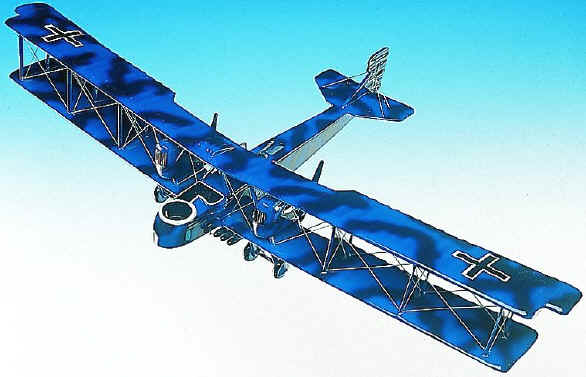|
|
|
 |
Gotha |
|
|
The
Gotha line of "heavy" bombers was a most important development
for bomber aircraft. The Gotha Ursinus G-I first flew in 1915. The
aircraft were improved throughout the war until the G-IV series. It was
the mainstay of the German strategic bomber program. It was the G-IV
that participated in the bombing of London and other locales in southern
England once the Zeppelins were countered by better aircraft and
incendiary bullets. Later versions had biplane tails with twin fins and
eliminated the position for the nose gunner. The blunt nose made it
possible to place the engines closer together, and, coupled with placing
the tailfins in the slipstream, gave better one-engine performance --
making it possible to run the engine at full power. But none of the type
G twin engine biplanes could fly level on one engine. Another feature of
the Gotha G-IV was a 'tunnel' in the bottom of the tail, that made it
possible for the tail gunner to cover the lower rear of the aircraft,
making it a most difficult aircraft to successfully attack. The first
Allied pilot to down a Gotha did so from directly behind where the
gunner was blinded by the tail. However, this maneuver would not work
well with a good pilot in the Gotha. |
|

|
Gotha
Bomber
Deluxe Series. 1/40th scale. 23' wingspan x
12.25" long.
No. ACG7D-DX. Only $179.95 |
|
